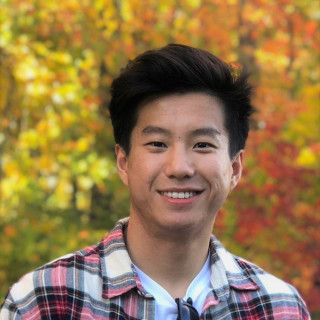When I started medical school, I thought I’d quickly “figure it out.” By the end of first year, I would have narrowed down my interests to a few specialties. By year two, I would have decided on a specialty I loved and a specific career I’d be happy to dedicate the rest of my life to. By year three I’d be doing the necessary things to be a competitive residency applicant, and by year four I’d be looking forward to the next stages of training.
For better or worse, none of those things happened. As the months went by, I kept waiting for the magic Eureka moment, for the metaphorical lightbulb to turn on and everything to click. And that’s not to say I didn’t find things I was interested in. In fact, it was quite the opposite: Instead of finding one specific focus I was passionate about, I found myself drawn to more and more things, often in different fields and sometimes only tangentially related to medicine. In addition to exploring different specialties, I sought out and spoke with several physician poets, writers, and screenwriters, learning more about their dual careers in the creative sphere. And though poetry had always been my medium of expression, I started experimenting with short fiction, and even screenplays. Taking a public health course also reignited my interest in health policy and care delivery.
At first, this surfeit of possible paths gave me a lot of anxiety. I watched several of my classmates find their “calling” on specific rotations, or immediately cross out other specialties on other electives. I envied their conviction and attempted to find some for myself: On every rotation, I would try to think about what my life would be if I were the attending on that service, and I would do my best to ask questions about that attending’s career and work life. Nevertheless, I still found myself feeling like a drifting anchor, looking for somewhere to settle and call home.
I had variations of the “how’d you choose?” conversation with several physicians throughout my clinical year — first with my inpatient psychiatry attending, then with my inpatient medicine attending, and finally with my primary care preceptor. Each time, they reassured me that I had nothing to worry about, that I had plenty of time to decide on my future. And each time, though I nodded and smiled in agreement, I didn’t quite believe them.
However, as time went by, I eventually realized that these physicians were all correct. I truly don’t have anything to worry about, because in fact, I have already “figured it out.” And no, the “figuring” isn’t about choosing a specialty, place to train, or even what to do next year. It’s realizing that what defines me is my commitment to pursuing my passions, regardless of what they are or how well they relate to the rigid structures of medicine.
This is what it means to be a physician in this modern age: Since starting medical school, I’ve come across many people who refuse to be hemmed in by one focus. These “physician-hyphenates” can be found among my professors and preceptors, and include physician-advocates, physician-entrepreneurs, physician-writers, physician-artists, physician-researchers, and more. I’ve found myself spending more and more time reading about my preceptors or lecturers after I’ve met them, because their biographies extend so much further than their medical training alone.
The more I observed the physicians, residents/fellows, and even classmates around me, the more I realized that in our era, the role of the physician, and medical student, has already shifted dramatically and will continue to change. Medical training now provides opportunities to nurture our interests and passions in an organic way, even if they lie outside the immediate realm of medicine. The training is long and arduous, but it also provides space for me to think and take time for myself without detracting from my clinical education.
Everywhere I look, from social media platforms to news outlets to afternoon didactics, I come across clinicians who don’t just have side hobbies or interests, but other careers and passions that they pursue with just as much energy as they did their medical training. Especially in this post-pandemic era, the role those in the medical community have as influencers, change-makers, and leaders both in the clinical world and in public perception has continued to grow. Physicians have embraced the opportunity and responsibility of being more than just doctors. I for one am excited for the things my generation will have the ability to do, as technologies continue to advance and there are more platforms for our voices to be amplified.
Many medical students and physicians of today have eschewed a conventional path. I’ve met classmates who, on the brink of graduation, haven’t yet decided on a specialty or even if medicine is right for them. I’ve met physicians who will practice for half the year and then fly across the country to direct a movie or work on a book. And I’ve met everyone in between — from those who practice five days a week to those who practice only one-half day a month. We all have the same training and background, and yet, everyone has such different schedules and obligations.
These interactions have shown me that the anxiety I felt in the beginning of medical school wasn’t something I should have shied away from. Instead, it was something to embrace. Instead of trying to configure and alter my own interests to fit the mold of medical school and post-grad training, I should also be fully exploring my own interests, even if they lie outside the checkboxes for residency applications or academic advancement. I shouldn’t constrain myself to only what is expected of me, especially if I feel that this hinders my ability to pursue my passions. Instead of just being a medical student, I should also be thinking of myself as “medical student and.” That expectation, and the fluidity of such an identity, also helps relieve a lot of the burden I felt in having to fit a certain mold and act in a particular way. Though committing to both physician-hood and other paths can take up a lot of time, I find that it’s time well spent — and each of my pursuits informs the other.
These days, being the best medical student I can be has meant embracing both aspects of that word: In clinics and in my academic career, I work my hardest to grow my medical knowledge and expertise, and outside of that, I continue pushing myself to be a better student of not just medicine, but of creative writing, public policy, and health management, all fields I am also interested in.
And so, since clinical year, I’ve been trying to seek experiences that I think will not only help me grow as a future physician, but also help me determine what comes after the “and.” I’ve pushed myself out of my comfort zone, trying to meet the different personifications of “physician and” and gain bits of advice and mentorship from them. And the more I’ve done so, the more I’ve realized how many different paths we can walk. This, I’ve realized, is what school has truly shown me — in being exposed to the almost limitless paths within medicine, I’ve gained more conviction and motivation to not change myself, but rather to learn how I can adapt my training and experiences to best suit my own unique identity and goals.
Ironically, sometimes I find myself back in that same boat of anxiety and uncertainty. Truthfully, I still don’t quite know yet what the “and,” or the specialty, will be for me. But I do know that when I make those decisions, it won’t have been for a lack of trying. And so, I’m going to continue exploring my interests and trying new things. I’m going to continue learning as much as I can, because for me, “figuring it out” is synonymous with not figuring it out, and I know now that’s something I’m going to happily grapple with for the rest of my career.
How did you choose your particular specialty/life path? Do you identify as a physician-and? Share your experiences in the comments!
David Xiang is a third-year medical student at Harvard Medical School, aspiring to be a physician-writer. He enjoys writing poetry and fiction, playing ukulele, and playing basketball with classmates. He also makes comedy skits on TikTok @confused.med.student. David is a 2022–2023 Doximity Op-Med Fellow.
Illustration by Diana Connolly







